
Medicinal plants: Digestion-boosting teas
If you have tummy troubles on the regular, it’s time for a little plant-based prevention. Emily Boese, a medical herbalist in Kelowna, B.C., starts her days with two digestion-promoting teas. First, she steeps dandelion-root, globe artichoke and milk thistle tea to sip before breakfast — the bitter herbs stimulate stomach acid and enzymes to prep the stomach for the first meal of the day. Then, mid-morning, she brews a cup of nettle tea, which has anti-inflammatory properties and is a diuretic that helps your body rid itself of waste. Here are 8 herbal teas with unbelievable health benefits.
Best Health tip: Avoid nettle tea late in the day: “It will make you have to pee in the night.”
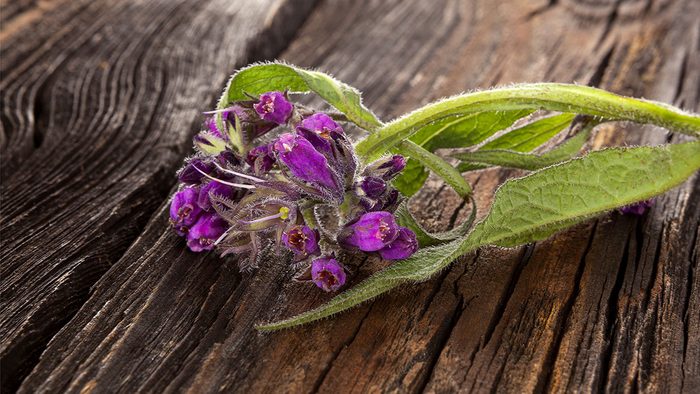
Medicinal plants: Comfrey for your pains
Grow a comfrey plant for your first-aid needs. Bryce Wylde, alternative medicine expert and co-author of Power Plants: Simple Home Remedies You Can Grow, calls comfrey nature’s Band-Aid. You can buy seeds to grow the plant, which can reach five feet and has purple or white flowers. Then, when you have a wound, you rip off a leaf, boil it to sterilize it and apply it to the injury. Wylde says this remedy has been used for years to reduce inflammation. (These foods can also help ease your pain).
Best Health tip: Limit comfrey to topical applications — it’s not meant to be ingested and can cause damage to the liver.
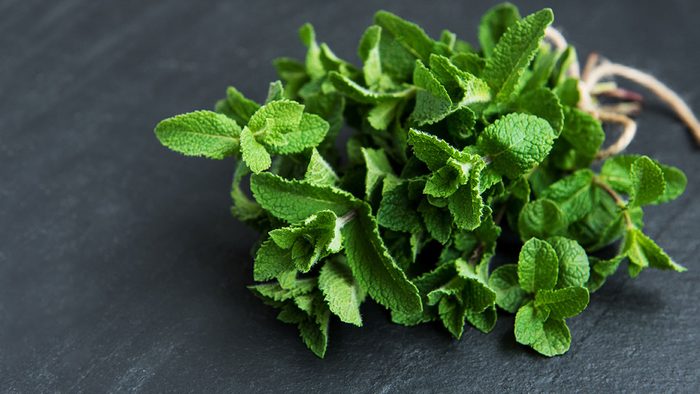
Medicinal plants: Mint to soothe
Cooling peppermint works wonders on your muscles. Boese recommends mixing peppermint essential oil into an ointment or salve to rub on sore muscles. The oil will penetrate the skin to offer pain relief. And muscles aren’t the only thing mint can soothe. In his book, Wylde suggests applying peppermint oil (or a diluted version of the essential oil) to your temples when you have a headache (find out exactly what might be causing your splitting headache), or taking capsules of peppermint oil to relax stomach muscles and thereby reduce digestive troubles.
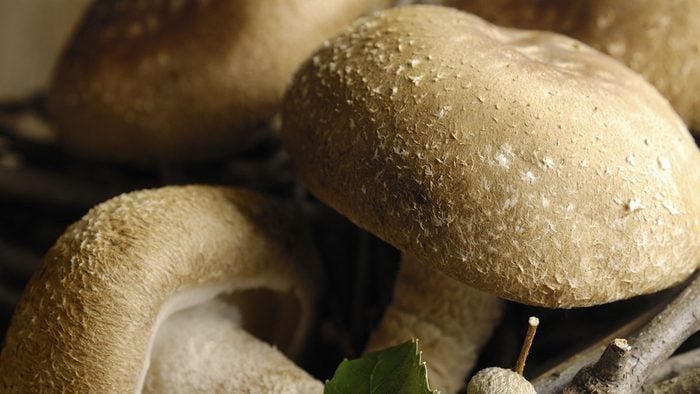
Medicinal plants: Coffee wake up
Wylde’s secret ingredient to make a more powerful cup of coffee? Mushrooms. Hear him out. The funghi contain something called active hexose correlated compounds (AHCCs), which boost immune cells and help fight inflammation. Plus, Wylde promises, “you won’t even really taste it. It will just add an earthy note to your coffee.” He suggests looking for shiitake, enoki or other dried mushrooms in your grocery or health food store, then throwing them in the grinder along with your organic coffee beans. Then, the next time you make a morning pot of Joe or mix up a cold brew, follow your recipe as usual and get ready for an extra boost.
If you’re looking to boost your metabolism, try this ingredient in your morning coffee.
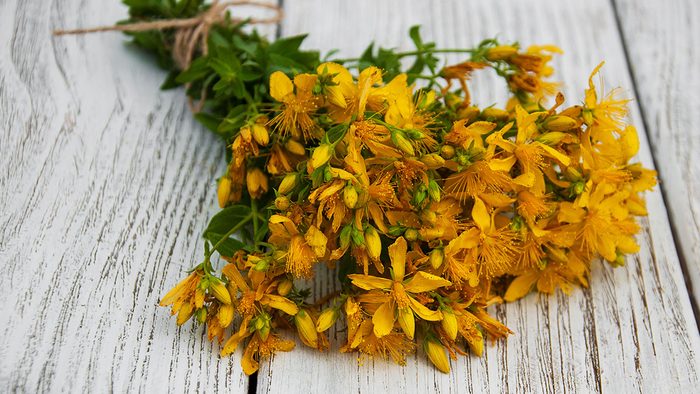
Medicinal plants: St. John’s for your spirits
If you’re feeling low or overwhelmed by stress, Boese says almost nothing beats the herbal supplement St. John’s wort, which has anti-inflammatory properties. Some studies have shown that it’s similarly effective to antidepressants, but it’s important not to combine the herb with pharmaceutical antidepressants, or forgo any existing prescriptions for it. Boese suggests seeing a health-care provider before taking St. John’s wort because it can interfere with other drugs. “A lot of medications can interact with it, but it’s also the most-researched plant, and it has the best evidence for being effective for depression,” she says.
Here are some other herbs that can do wonders for your health.
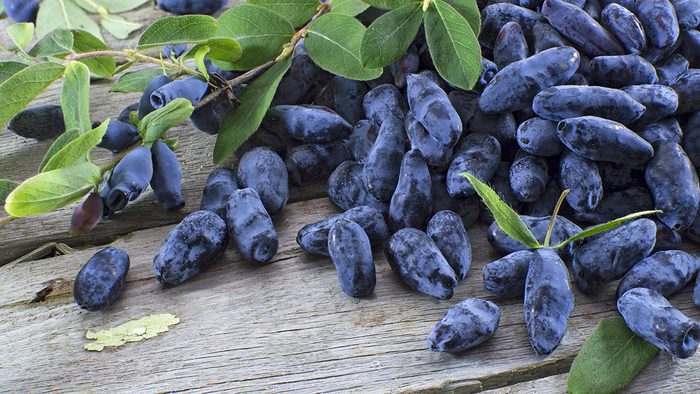
Medicinal plants: Better than blue
If you haven’t heard of haskaps, it’s time to seek out these antioxidant-packed, grown-in-Canada berries. Though they look a little like oblong blueberries, Wylde says they “have a one-up on blueberries.” You can see the difference when you bite in — unlike the white-fleshed blueberry, haskaps are dark purple inside, a sign that they’re rich with polyphenols all the way through. With all of that antioxidant power, haskaps are terrific anti-agers, and they promote good cardiovascular health and youthful skin. But if you’d rather stick to trusty blueberries, make sure you’re aware of these health benefits.
Best Health tip: Check out Haskap for recipes and more.
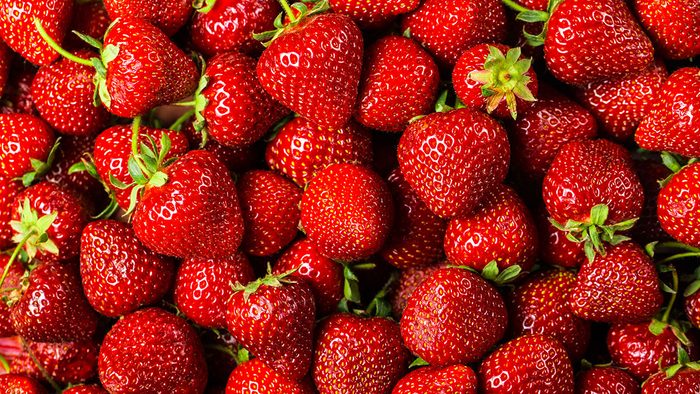
Medicinal plants: Berry brightener
Fresh strawberries contain salicylic acid, which helps dissolve the outer layer of skin that can clog pores. In beauty products, salicylic acid is used to treat acne and brighten skin, but with fresh berries, you can get your own version of this powerful ingredient right from your fridge or garden. Amy Galper and Christina Daigneault’s new book Plant-Powered Beauty contains a recipe for a berry-rich, fresh anti-inflammatory and brightening facial mask. Blend four ripe strawberries with one tablespoon of honey for one to two minutes, then add a drop of German (blue) chamomile essential oil and apply the mask to your skin. After 10 minutes, rinse it off with warm water and pat your skin dry.
Here are some more health benefits of berries you’ll wish you knew sooner.
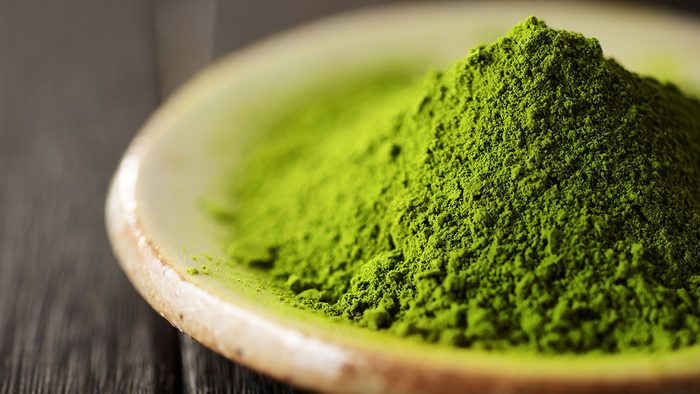
Medicinal plants: Green glow
Don’t reserve matcha for your latte. Plant-Powered Beauty recommends adding the antioxidant-packed ingredient to an anti-aging facial scrub (or try elevating your smoothie bowl). The green tea powder contains chlorophyll, which, when applied topically, promotes tissue regeneration and healing.
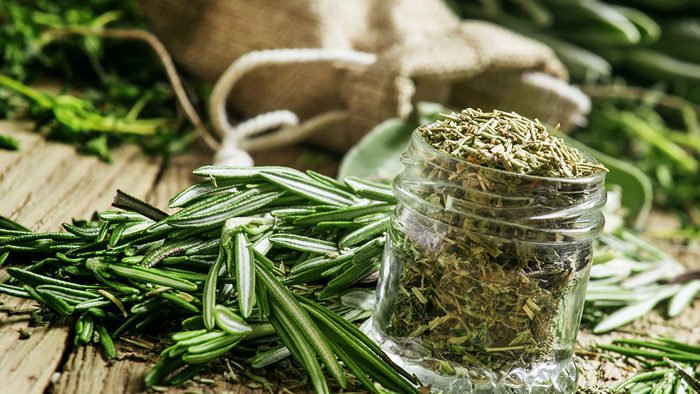
Medicinal plants: Remember rosemary
Treat yourself to a soothing rosemary bath when you need to de-stress and, surprise, when you need to hone your memory. Add four to five sprigs of rosemary and a cup of Epsom salts to the tub, then take a soak. Wylde says not only is the herb calming, but it can also boost your memory. (For something a little more nature-inspired, this simple activity is proven to boost your memory by 20 percent). According to one study, students who worked in a room filled with the scent of rosemary performed better on a memory test. So grab some stems from the garden, draw a bath, and let the herbs do their work.
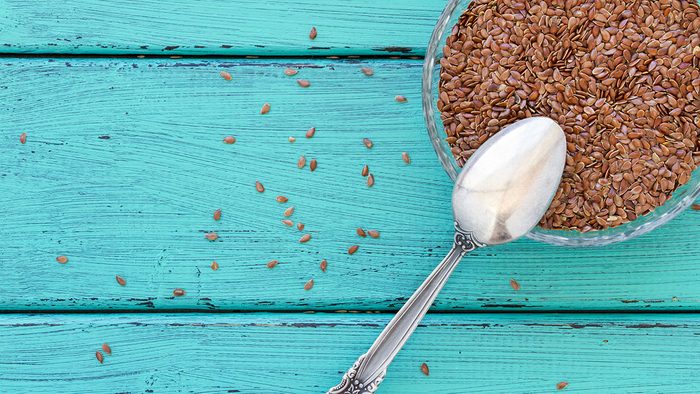
Medicinal plants: Flax fix
Flaxseed makes an excellent remedy for speeding up digestion when things are a little slow. Naturally high in fibre, flaxseed contains mucilage, a slimy substance that can coat the digestive tract. Simply mix a tablespoon of ground flax in a glass of warm water and drink it down for a laxative effect. Read on to find out if flaxseed is really the answer to your constipation.
Best Health tip: Don’t skimp on the water or that big dose of fibre could do the opposite of what you intend it to.
